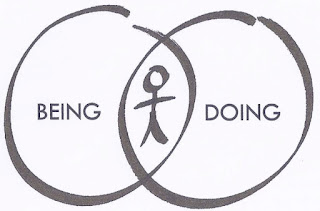Reflecting on the Last Words of Christ (Part 2)
[Note: These reflections were originally posted for Lent 2011.]
"Woman, behold your son…Behold your mother." (John 19:26-27)
Just a few weeks ago we celebrated the feast of the Annunciation. As we listen to the final words of Jesus before his death and resurrection we also call to mind the words of Mary to the angel, "Be it done unto me according to your will." How similar is Mary's abandonment to the will of God as her own son's prayer in the garden the night before he died, "Not my will but your will be done." Here at the cross the obedience of Mary and Jesus come together to free us from our slavery to sin so that we may use our will to say yes to God as well.
In these simple words Jesus entrusts his own mother to the Church, represented by the beloved disciple, and the Church to his mother. We can be confident that as we look to Mary she will always lead us to her son. She was there when he was conceived, there when he performed his first miracle, there when he sacrificed his life for us, and there when he poured out the Holy Spirit at Pentecost. Scripture tells us that along the way Mary pondered these things in heart. She is our model for living a contemplative life of reflecting on what God has done, is doing, and will do in our lives.
May we follow the example of the beloved disciple and take Mary into our homes. May we learn from her humility and faith in God. She said yes when it wasn't convenient to do so. She trusted God even when she couldn't fully understand how he would fulfill his promise. She accepted the joys and sorrows equally because she ultimately knew that God was in control and could be trusted to "work all things together for the good of those who trust in him." May our prayer be that Mary, our mother, will reveal her son to us in ways that are new and meaningful to transform our lives by the power of his cross and resurrection.
"My God, My God, why have you forsaken me?" (Matthew 27:46)
Where was God when terrorists attacked churches in Egypt on Palm Sunday? Where was he when women and children were gassed in Syria? Is he all powerful but uncaring, or is he all loving but impotent? Where is God when over 1 million abortions take place each year in United States alone? Why did God allow the cancer to return? Where is God when life hurts?
“Eloi, Eloi, lema sabachthani?” Jesus cried out from the cross with the very questions that shake our faith. The great Catholic theologian Hans Urs von Balthasar reflected on the depths of the suffering Jesus endured for us on the cross. In his homily, “The Scapegoat and the Trinity”, he said,
“Jesus, the Crucified, endures our inner darkness and estrangement from God, and he does so in our place. It is all the more painful for him, the less he has merited it ... there is nothing familiar about it to him: It is utterly alien and full of horror. Indeed, he suffers more deeply than an ordinary man is capable of suffering, even were he condemned and rejected by God, because only the incarnate Son knows who the Father really is and what it means to be deprived of him, to have lost him (to all appearances) forever. It is meaningless to call this suffering ‘hell,’ for there is no hatred of God in Jesus, only a pain that is deeper and more timeless than the ordinary man could endure either in his lifetime or after his death.”
As Catholics we reject the notion that the Father could forsake the Son; that God could turn away from God. But Jesus was not merely God, he was the God-man and in his humanity, hanging on that cross it is not beyond reason to see that he felt abandoned and forsaken. In that moment, in the midst of suffering that goes beyond what we could imagine, in the fullness of his human nature Jesus experienced that dark night of the soul when it seems that even God has turned away.
What does this have to do with answering questions about evil in the world? How does this apply to the problems of our pain and suffering? Because the Son of God passed through the way of suffering he was able to redeem our pain. It means that though this world is fallen and broken we must pass through the way of suffering, the way of the cross, if we want to experience the joy and glory of the resurrection. The good news is that we have a Savior that will go through it with us, or as Catholic author Melinda Selmys explains, “For Christ, in being forsaken on the cross, entered into this, the deepest of human sufferings, so that even in the greatest darkness we will never be alone.”



Comments